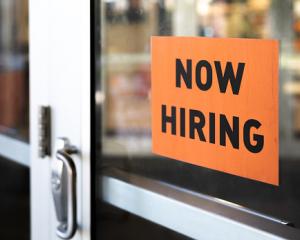
Auckland’s closed borders and the loss of the transtasman bubble in August severely affected the company’s performance in the first half of the financial year.
‘‘It has been a double whammy for us,’’ Skyline chairwoman Jan Hunt said.
Skyline recently updated shareholders in a letter on the company’s activities for the six months to September 30, but did not give any financial results.
Earlier this year, the Queenstown-based international tourism company reported a full-year profit of $56.7million in the 12 months to March 30.
The company’s firms profit despite the impacts of Covid-19 drew criticism from outspoken shareholders, who put forward a motion at its annual meeting to repay the $7.9million Skyline took from the Government’s wage subsidy last year.
The motion was voted down by 95% of shareholders after the board urged them not to vote in favour.
Ms Hunt said the troubled start to the year proved Skyline’s board’s rationale not to repay the subsidy.
Covid-19 was always going to have a long tail to it and it would be a long time until the company had a full recovery, so the wage subsidy was vital for Skyline.
‘‘Turning on the gondolas in Queenstown every morning is a big cost that isn’t covered by the wage subsidy and 95% of the shareholders backed us in that.’’
With New Zealand’s no-Covid status at the start of this year and the opening of the transtasman bubble, the company had had a positive outlook for 2021, Ms Hunt said.
‘‘We knew it certainly wasn’t going to be anything like it was pre-Covid but we thought it might have been OK,’’ she said.
Next year, it was hoped there might be a return of international travellers of some sort.
The big issue was that there were only nine international airlines flying into New Zealand now, compared with 31 before the pandemic.
‘‘Connectivity will be a big problem to get people into New Zealand and that is going to make a big difference,’’ she said.
Skyline’s two South Korean operations had performed well in the past six months as the country ‘‘got on with getting on’’, Ms Hunt said.
South Korea was learning to live with Covid-19 as opposed to being fearful of it and New Zealand needed to follow suit.
‘‘I think we are tracking towards that and [the] sooner we get there and get our airline connectivity sorted, New Zealand’s tourism industry will be in a much better place to get going again,’’ Ms Hunt said.
Skyline’s two parks in Canada had also traded ‘‘particularly well’’ over the northern hemisphere’s summer.
Its New Zealand operation would be getting a welcome boost over the summer as Aucklanders began travelling again.
‘‘It is going to be great for us and our staff to be busy again so we can’t wait,’’ she said.
Skyline was undertaking feasibility plans and was in discussions for two new sites in the United Kingdom.
Its luge site in Kuala Lumpur, Malaysia was expected to be opened by mid-2023.












